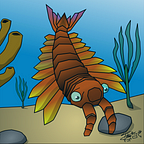The Knowledge-Implementation Gap in Conservation Science
Exploring the space between “knowing” and “doing”
Looking for knowledge, but not for actions
Scientific papers are the main tool for scientists to share their work with other scientists or for reviewing the research conducted by others. They are critical to the evolution of science, in which the work of one scientist builds upon that of others.
Since publishing a scientific article is hard work, the number of published articles is usually linked to our vision of a successful and productive scientist [1].
Consequently, the system favors the publication of many scientific articles in order to justify the work of scientists.
This isn’t bad per se, but it can give the illusion that a scientist’s work is limited to producing scientific literature, often without considering its impact beyond the academy.
The problem with this system is that this body of literature does not always spread information to people beyond a specific field of interest [1]. Furthermore, it is frequent that the scientific literature is so technical that it can’t be easily understood by non-specialized readers.
This raises a practical concern: the exclusivity of scientific publications and the reward system may negatively affect the scientific literacy of the public which, in turn, may negatively affect societal decisions related the funding of basic research, management of environmental resources, or support for science education [1].
Barriers to knowledge implementation
The knowledge-implementation gap refers to the disconnect between the knowledge generated by researchers and the information being used to inform policy and practice decisions [2].
Underpinning conservation policy and practice with scientific evidence is important for efficiently solving environmental problems. However, conservation science is currently at a crossroads.
At a time when scientific reports of unprecedented biodiversity loss, human-induced climate change, and plastics in the ocean are communicated in the media, an increasing number of studies have demonstrated the complex, often negligible, and sometimes contradictory role that scientific facts play in policy and behavior change in society [3].
The impediments to the implementation of knowledge vary according to the social context and the actors involved and occur bilaterally, from the people who produce the knowledge to the people who need that information and vice versa.
Some impediments stem from inherent features of the knowledge production system, such as the reward structure in science, that promotes publication and grant income rather than engaging with conservation practitioners [4, 5].
Often the article publication deadlines are incompatible with solving urgent conservation problems, and there may be funding constraints that make it difficult to address issues on ecologically relevant temporal or spatial scales [6, 7].
Barriers are also institutional; for example, the often weak incentives given within research institutions to undertake the multidisciplinary research needed to develop realistic solutions to many problems [8, 9].
Other impediments include the lack of financial resources and operational capacity of decision-makers, the lack of alignment between the scientific research carried out and the necessary information, difficulty accessing and interpreting relevant scientific information, and bureaucratic restrictions within the agencies [5, 10, 11, 12].
From the classroom to the real world
Scientific research is a socioeconomic activity fraught with power relations, cultural understandings, social interactions, and political consequences [13].
The knowledge transfer goes in multiple directions, such that biophysical and social science inform management actions, and management needs inform scientific research [13, 14].
For research to be translated into real actions, it must be relevant to decision-making bodies and provided when needed, credible, and developed through a process that considers the values and perspectives of all stakeholders for both scientists and decision-makers [15].
To effectively create, facilitate, and participate in research implementation spaces, conservation scientists require education and training with an emphasis on the building of a wide spectrum of conservation capacities [13, 16, 17].
This requires a renewed focus on the types of thinking, skills, and resourcing needed to more effectively navigate such spaces, rather than producing the “best available evidence” to fill a “gap” [13, 18].
Students studying conservation science could be trained in professional problem-solving skills (e.g., creative and critical thinking, active listening, program evaluation, participatory planning methods, and systems thinking) and to be presented with important perspectives from other disciplines such as psychology, sociology, and anthropology [13, 19].
More focused efforts by university departments to partner with community organizations, environmental nonprofits, and other stakeholder groups for undergraduate and graduate research collaborations will go a long way toward ensuring that students are already inhabiting research-implementation spaces as part of their formal training [13].
Environmental studies departments need to move beyond multidisciplinary toward inter- and transdisciplinary, where shared goals and values can train students to seek out, understand, integrate, and apply different types of knowledge gained in their courses to problems in the real world [13].
You can find more information about the knowledge-implementation gap in conservation science in the following links: [1,2, 3, 4, 5, 6, 7, 8, 9,10, 11, 12, 13, 14, 15, 16, 18]
Let me know your opinion in the comments.
If you enjoy reading stories like these and want to support me as a writer, consider signing up to become a Medium member.
See also:
